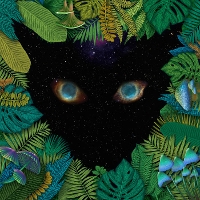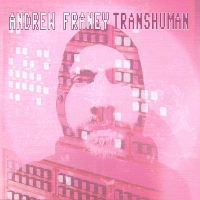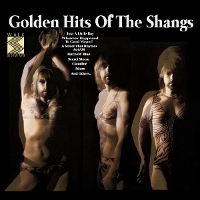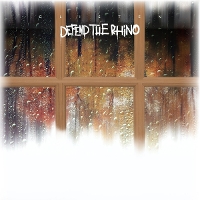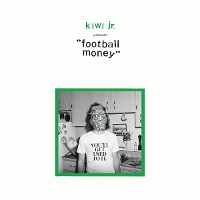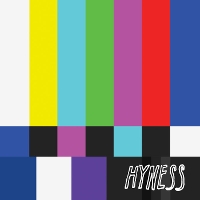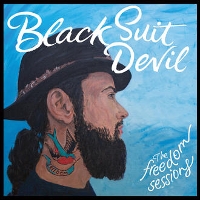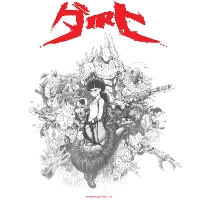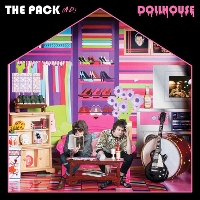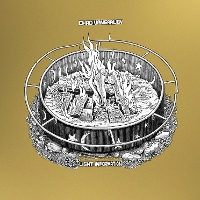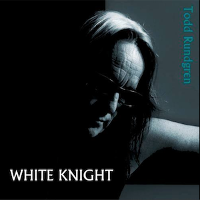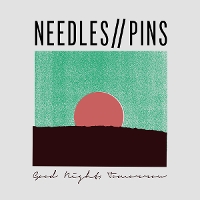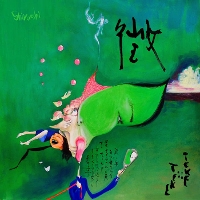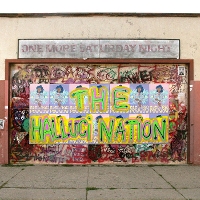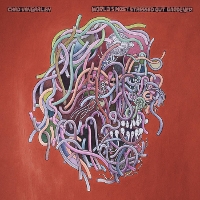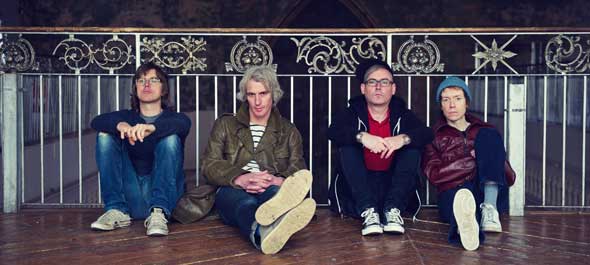
Sloan: Four in to One
Patrick Pentland opens up about the new album, how the band works and records, the music business and more.
One of Canada's iconic bands, SLOAN has just released their 11th studio album. SLOAN were leaders in the 1990's burgeoning Halifax indie scene with hits like “Underwhelmed” and “Coax Me” and over the last 20 + years they have continued to churn out hits with that distinct SLOAN sound.
Commonwealth, released September 9th, is a concept album where each band member has taken a side, basically as their own solo project. It is a departure for the band but in a way not much of a change. “Each side is for each band member ,” explains Patrick Pentland, “but we are always sort of writing by ourselves” The band has always worked together in the studio, but writing was a different story. “Well maybe the odd person will collaborate. I mean Chris [Murphy] and Jay [Ferguson] will help each other with the odd song but for the most part everybody writes their own stuff anyway.”
Commonwealth takes that a step further. I had a chance to chat with Patrick Pentland, lead guitarist of SLOAN, we talked about music journalism, touring after 20+ years together and that no one on the record sounds like Tom Petty.
 When you listen to our records it is often like a compilation record of SLOAN
When you listen to our records it is often like a compilation record of SLOAN
Erin Flynn: SLOAN announced last July that you were going to take on this concept. Can you tell us a little bit about why, now?
Patrick Pentland: As you said it is our 11th record, I mean there is only so many things you can do to keep your selves or anybody else interested at this point. So for years people had sort of said, people who knew we were sort of writing our own stuff individually, were always like why don't you just do a solo record? Why don't you just do your own stuff? And of course there is comparisons to KISS or somebody else who did their own four solo records. We didn’t really want to do four full records and with four guys at 12 or 13 songs each you are looking at 48 new SLOAN songs, or rather just songs, released at the same time and it just seemed like a glut of SLOAN to come out at one time. Especially in this day and age when the concept of the album in general… well people are not listening to full records anymore. So we thought let’s just do a double record and everybody can have a side and you can just do whatever you want with that side. Its not much different then we usually do, it's just that we don't usually put like four or five Jay songs in a row on a record, we would do like a Jay song then a Chris song then an Andrew song then a Patrick song. So when you listen to our records it is often like a compilation record of SLOAN and with this we wanted to not do that so much but to say here is what a Jay record would sound like if you just listened to a Jay record without actually doing a full Jay record.
EF: I have listened to a couple times now and it sounds like SLOAN. You are responsible for side 3 and Andrew [Scott], the drummer, owns side 4. These are, to me, the most compelling but also the most divergent from the SLOAN sound.
PP: Well I think that is partly because, Andrew did that one long song but I think it is in part because if you talk about doing four solo records or four solo sides, in one way you could take it and do something completely different then you have ever done before. And I think we all sort of looked at it that way and thought this is the chance to do a hip hop record or you know what I mean, we could do whatever we want. But in the end I really felt like I am going to have to tour this, I am gonna have to play these songs in the future and so I really wanted them to reflect that. I didn't want them to be too wild or too different. There were pieces of music I was going to include and my side is a little short because I had a couple pieces of music that were more ambient , sort of soundscape type songs and I didn't end up using those in the end.
 I grew up listening to like Jesus Mary Chain and Love and Rockets or stuff like that with a lot of fuzzy guitar.
I grew up listening to like Jesus Mary Chain and Love and Rockets or stuff like that with a lot of fuzzy guitar. That could have made the sound even more different, but what I decided to do was to go back and sort of celebrate, pay homage to that 80's sort of fuzzed out post-punk stuff that I grew up listening to like Jesus Mary Chain and Love and Rockets or stuff like that with a lot of fuzzy guitar. I might not have done that many fuzzy songs on a SLOAN record, I might have done one and then like more of a rocker and then more of an acoustic thing.
That could have made the sound even more different, but what I decided to do was to go back and sort of celebrate, pay homage to that 80's sort of fuzzed out post-punk stuff that I grew up listening to like Jesus Mary Chain and Love and Rockets or stuff like that with a lot of fuzzy guitar. I might not have done that many fuzzy songs on a SLOAN record, I might have done one and then like more of a rocker and then more of an acoustic thing.
EF: Maybe we listened to some of the same music growing up. What kind of reaction have you had?
PP: I have been complaining on twitter because reading these reviews of the record, when they get to my side, most music writers, when they talk about us, is to reference the Beatles and it is such a cop-out, boring thing for anybody to read really, but then at the same time writers who don't know any of that music and their musical education started with Weezer. So when listening to my songs, some people are just referring to them as hard rock or Camero rock and it is just like what are you talking about? But then I realize they don't know, because I am talking about records that were made in the mid-80's and these people were maybe just born then, probably not even born then.You know on the one hand, I expect if you are going to write about music for a living, then you should know this. If you are going to claim that you have such an extensive record collection and you have a bunch of Beatles records you know.. and whatever. I mean it sucks to be misunderstood. At the same time, people knowing the history of our band or singles we have released, I can see where they might just say it is just a hard rock song or something like that. When really, I took the time to put tons of fuzz and tons of feedback which is sort of reminiscent of our first record which was influenced by all those bands, you know.
EF: You are often compared to the Beatles, do you have an aversion to this?
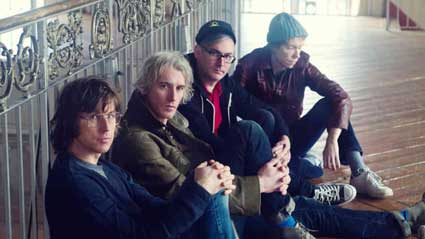
.
PP: It is literally because there is harmony. Many, many bands have harmony. Many bands that came after the Beatles and before had harmonies and so it is just easy. It is just lazy writing. I mean, of course, I appreciate anybody who writes about us but it seems you get two things. You get writers who just don't bother to see beyond what everybody else has written and then you have got writers who just want to show off their extensive knowledge of rock music and they almost always get it wrong. There was somebody who wrote a review of the record and they were talking about a song of Chris' and calling it his Tom Petty song, or influenced by Tom Petty where as Chris hates Tom Petty. There is no way he would have done that. But it wasn't written in a way that implied the writer thinks that is what he is doing, it was written like fact. I find that to be frustrating because you see that a lot. Not this record so much but the previous record, people talked a lot about the Spoon influence and up until recently I had never, ever heard Spoon before in my life. None of us have, so it's this frustrating thing. When I was talking about this stuff earlier, on twitter, I was talking about what reviews might have been like for bands before like for the Beatles, when Sgt. Pepper came out, who were they being compared to? Probably nobody. Maybe the Beach Boys but probably not. Rock journalists at that point talked about the music itself. The whole article wasn't trying to second guess what the influence was or what they were trying to do or who they were trying to sound like. Most of the time you are not really trying to sound like anybody and especially for SLOAN. To claim that Chris Murphy is trying to sound like Tom Petty? No he's not, he's got 11 records out. He is trying to sound like himself, he has already got his own sound. That is the Chris Murphy sound. Of course every body's sound is derived from what they grew up listening to but you know at some point you have to stop talking about what the influences are and talk about the music itself
EF: About the album art, is this the first time that it is not a photograph of the band?
PP: It is not the first time. The first record is a picture of other friends at a party in 1989 or 1990 or something but yeah. I mean technically we are on kind of on the front cover, in that we are those cards but yes it is not a photograph of us. Chris and Jay usually like to have a picture of us on the cover. I think as we are getting older they are now preferring to have cartoons of us on it!
EF: Tell me more about the concept of playing cards?
PP: That concept of the four cards came along way before the title of the record. I don't even remember why. I know I had sort of suggested it at one point because I was checking out some graphic designers on instagram about a year and a half a go.These guys were doing these crazy faces on cards, I thought it looked really cool. So I suggested, one thing we could do is face cards. Probably other people had similar ideas, so we went with that and we decided to have our own pictures. I said I'd like to do a shamrock or four leaf clover instead of a club. Then we had to come up with a name for the record. So everybody was going online and going through different books and looking up references to cards or face cards and we really couldn't come up with anything. Then somehow somebody came up with Commonwealth and I thought that was really cool and everybody sort of agreed. Then I realized afterwards, commonwealth really has nothing to do with cards at all! We should have a big coat of arms or something like that but it was too late because the cards had already been done and the artwork was underway by the time we came up with the name for the record. It kinda makes sense because we are all kings but at the same time had we come up with the name first we might not have gone with the card motif.
EF: Shamrock is a nod to Irish roots?
PP: Yeah, I have a very cliché thing. I have a bunch of different shamrock things around.like I have a tattoo, a belt buckle I wear all the time, guitar strap and it has a thing on the back of it. Just good luck type things. I am from Northern Ireland so I wanted to personalize it that way.
EF: The first single to be released was “Keep Swinging (Downtown)”. How do you decide?
PP: We don't decide. We hire a company who are sort of a radio promotion company and they play it for people, get feedback and then they let us know that they believe this will be the good one. We didn't anticipate this would be the single, we thought “13 (Under a Bad Sign)” would be the single.They came back with that and we were fine with it. I think it is sort of closer to what we have released in the past as singles. With radio we are not looking to break new ground. To sort of say we don't want you to play this one, we want you to play that one and then it gets played and we get huge, it doesn't really happen that way. We are just happy that anyone wants to play anything. It is a little different. Yes, it is released to radio but you can go online and listen to every song anyway, you know. We were going to do a video for it, we had some people apply for a grant for us but we didn't get the funds so then we were going to do our own but our enthusiasm waned
EF: Considering your expansive music career have things become harder or easier?
PP: Well it is easier for us to communicate and get music out. For a couple reasons, it is easier to get music out more quickly because of the internet. There are tools available to anyone. And then at the same time we own our own studio, which is a product of years of putting things together, and you know being able to build that up. We can go in there and record technically whenever we want to. Although it is not free, we have to pay an engineer and such, but it is quicker then it used to be. But then the flip side is that labels do not have any money. So when we put a record out there is very little promotion that is done on a very big scale because the money isn't there to do that. For us it is ok because we have always been sort of independent.
 We usually sing on each others songs and that is usually where people are like 'that sounds like SLOAN.'
We usually sing on each others songs and that is usually where people are like 'that sounds like SLOAN.' Even when we were on a major label in the States, and we were distributed through Canada on a major label, we were still on an independent label, we own our own publishing so we make a lot more money because of that.
Even when we were on a major label in the States, and we were distributed through Canada on a major label, we were still on an independent label, we own our own publishing so we make a lot more money because of that.
There are bands that we came up with, in the 90's... We just played a festival over the summer on a bill with with Our Lady Peace and I Mother Earth, it was this 90's nostalgia. You know, a band like I Mother Earth,when the music industry changed and the label stopped making money, the labels kind of pulled their support from all these bands that had been depending on their advances to make records and their tour support money . This had always been the case and these bands were able to survive and suddenly it was taken away from them and they crumpled. They all had to get jobs and that happened to a ton of bands that were our peers. They might have lasted a year or two after everything started to fall apart but then they were gone. I think because we have been able to stay kind of in our own little world and protective of our own work– like I said, we own our publishing, we own our records, we haven't sold that stuff. It doesn’t make us a ton of money but more then it would if we didn't own it. I think what I have seen is the playing field sort of get brought down to even, sort of flattened again. Because major labels, for a long time, made a ton of money and charged a lot of money for music and suddenly when that was taken a way from them they realized that they didn't really have any business plan whatsoever underneath and they just kind of started to sue people and that fell apart and they went out of business.
EF: Did making a concept record change the process of how a SLOAN album comes together?
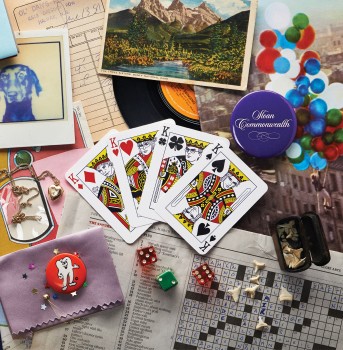
Commonwealth
PP: Kind of. We just started recording and someone would pop their head in and say hey what are you working on and then they would look but they never got too involved. For instance, we just spent like three or four weeks learning how to play the songs on the record because we didn't know how to play them. I didn't know how to play any of Andrew's song until he showed us all how to play it.
EF: So how did the recording happen?
PP: Generally, for me, if I have the music, melody and lyrics then I would probably play guitar to a drum machine or drum loop and build a song up. Then get Andrew to play drums over that and Chris would come and lay down bass, Jay never really plays guitar on my stuff because I don't need him to, I can play the parts and he can learn them later and vice versa. Then I would sing on it and that is sort of how everybody does it. Except with Chris this time. Like me, he would usually start with an idea and start to build it, but he was very adamant to get things done very quickly. So he recorded all these songs but then he didn't really like what he'd recorded. He started to replace things but then he realized he couldn't really replace them and he started to change the key of the song and so he had to redo the whole song in the end. He basically spent three times more recording his songs because he kept changing things. Where as I took a long time to record things, meaning I was probably the last guy to start recording. I spent only about 5 days in total in the studio recording all my stuff. I just went and made sure it was exactly what I wanted to do before I recorded it. But that is sort of how it works, building it up piece by piece but it doesn't always start with the drums first and it often doesn't start with more then one or two people in the studio at at one time. The thing that ties it together usually is our voices. We usually sing on each others songs and that is usually where people are like "that sounds like SLOAN."
EF: And that does happen on this album too?
PP: It does. The vocal thing is something that we agreed we would have and Gregory Macdonald, plays keyboards and harmonies a lot on this too.
EF: I imagine you have out grown the four guys in a van, how is it to tour these days?
PP: We usually tour just a big chunk when the records comes out, then we usually do a little. It is going to be weird because we are touring a lot Oct - Nov because I am having a baby in December and don’t want to tour December to March. So we are going to pack as many shows in before that.
Well we have been doing for a long time, and its not just us. There are 5 other people touring with us. It is like a full bus. We get along with everybody we work with, they are all friends. I mean, we are not holding hands going to the Smithsonian together. Everybody just takes off and does their own thing. I really like playing shows but everything else sucks. You don’t really want to be away from your kids, loved ones and friends for extended periods of time. It is great when you are playing Vancouver or LA but a lot of the time you are playing some small towns, out of the way and there is like a motel, Burger King and the venue. But that is a small price to pay for doing what I do for a living. It is still fun. It doesn’t matter what city you’re in when your on stage, as cliché as it sounds, it doesn’t really matter where you are, any town can be fun.
Whether you are a die hard SLOAN fan or new to the band, Commonwealth is a great album and provides nice insight into this Canadian institution. Tour dates can be found on their website at : sloanmusic.com. And if you want to know more about Patrick’s adventures into fatherhood check out his new blog dadbrains.ca

